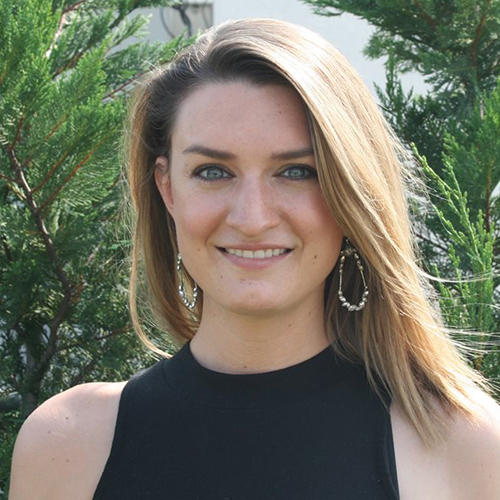North America
International Markets
Europe
North America
International Markets
Europe
My First Migraine - And What I've Learned Since

Danielle Fancher talks about her first migraine attack, and shares stories from her community. If one thing is certain, it's not a thing that anyone forgets.
I’ll never forget my first migraine. I was 16 years old and had just finished my last class of the day at school. It was warm outside. I was walking to my car as I started to see small, multicolored spots which, I'd later learn are called migraine aura.
During my drive home, the spinning colors started to take over my entire field of vision. I had to stop driving. I felt sick, afraid, and very confused. Then the migraine pain set in.
That migraine attack was the first of many. Yet, it wasn't until many years later that I started to talk about migraine with the people in my life.
Most people with migraine who I've talked to also remember their first episode. Like me, they remember feeling scared and fearful for their lives and unsure of who to talk to.
Of course, everyone is different, and your first brush with migraine might not exactly mirror mine. However, I do think that most of us experience very similar things.
It’s ingrained in my memory
I wanted to learn more about what most people experience during their first migraine, so I asked a few of my friends on social media about their first episode. Most said that they remember their first migraine, and in great detail, too. Here are some things they shared with me:
- “I was all dressed up for holiday photos at JCPenney. When I got back home, my mom had to carry me through the house.”
- “I was 5 years old and at my babysitter's house.”
- “I was in third grade. I raised my hand and told the teacher I couldn’t see half of the board.”
- “I was in the middle of history class in the seventh grade.”
- “I was 16 and could barely walk home from school.”
- “It was my senior year in high school. On prom night.”
- “It was 24 years ago. I was 17 and at my first day of college orientation.”
- “I was on the train to work.”
Across the board, my friends say that their first migraine was something they’ll never forget. A few of them even said that that day changed their life. I couldn’t agree more.
It scared me
As I mentioned before, during my first migraine, my aura took over my full line of vision while I was driving. I couldn’t see the road in front of me. I had no idea what was happening and it was terrifying.
My friends with migraine have shared similar sentiments about their first migraine experience. Some have even told me that they thought they were dying.
Migraine pain is excruciating and the aura experience can feel equally traumatic. My one friend told me, "I started to panic, thinking I was going blind,” in regard to her aura.
Talking about it was a challenge
For a long time, my mother was the only person I shared my migraine experiences with. I never talked about them with my friends or teachers. I don't exactly know why I was so keen on keeping my migraine attacks secret. It just didn't seem like a topic people discussed.
Similar to my experiences, I have some friends who've opened up to others about their migraines, only to be let down by other’s responses. For example, one friend told me that her mother admitted to thinking she was faking her migraines. Another friend said that during her first migraine attack, when she sought emergency treatment, the person at the medical facility she went to implied that she was lying about her symptoms.
In all honesty, I am not surprised by these answers. It's upsetting that people would actually think someone would make up feeling such terrible pain. Further, it makes sense that many of us remain quiet due to these responses.
Takeaway
In hindsight, I wish that migraines had been a more open topic of discussion in my everyday life. Had I known that other people were facing similar struggles, then I would have felt much less afraid and alone.
This is exactly why I’ve started a migraine community on social media. By continuing to advocate and build this community, I hope I'm allowing newcomers to feel less alone and afraid as I once did.
The information presented is solely for educational purposes, not as specific advice for caregivers or the evaluation, management, or treatment of any condition.
The individual(s) who have written and created the content in and whose images appear in this article have been paid by Teva Pharmaceuticals for their contributions. This content represents the opinions of the contributor and does not necessarily reflect those of Teva Pharmaceuticals. Similarly, Teva Pharmaceuticals does not review, control, influence or endorse any content related to the contributor's websites or social media networks. This content is intended for informational and educational purposes and should not be considered medical advice or recommendations. Consult a qualified medical professional for diagnosis and before beginning or changing any treatment regimen.
NPS-ALL-NP-00952






































































